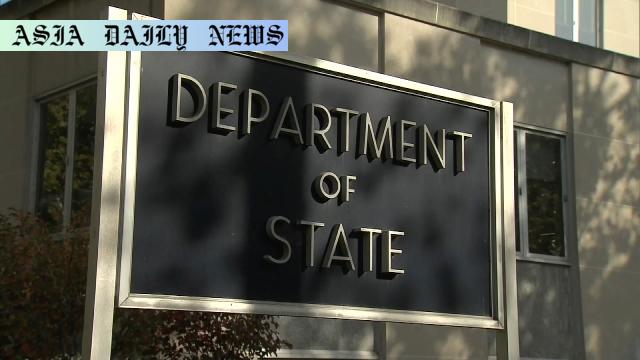Japan’s Election: Reactions from the US, South Korea, and China on the Upper House elections emphasize diplomacy and stability.
- Japan’s Upper House election drew responses from the US, South Korea, and China.
- The US emphasized bilateral, regional, and global cooperation with Japan.
- South Korea seeks to enhance mature and constructive relations with Japan.
- China refrained from internal comments but advocated dialogue for stability.

Japan’s Upper House Election in the Global Spotlight
The recent Upper House election in Japan has drawn significant international attention, with key geopolitical players such as the United States, South Korea, and China expressing their views on the results. This election not only influences Japan’s domestic policies but also carries implications for regional and global stability.
Washington’s Outlook: Strengthening Strategic Collaboration
In the United States, the outcome has been closely monitored by the State Department. A spokesperson affirmed Washington’s eagerness to collaborate with the newly constituted Japanese government on a wide range of issues. These include reinforcing the US-Japan defense alliance, addressing regional stability in the Indo-Pacific, and enhancing economic and trilateral ties with South Korea. This reaction underscores the pivotal role Japan plays as a strategic partner in advancing shared goals across a volatile region.
South Korea’s Focus on Bilateral Relations
Across the Sea of Japan, South Korea’s Foreign Ministry stressed its commitment to nurturing a strong, constructive bilateral relationship with Japan. By calling for closer exchanges of opinions, Seoul signaled its interest in resolving long-standing tensions and fostering deeper cooperation. This response reflects the importance of Japan-South Korea relations in addressing historical grievances while working towards shared security and economic goals in Northeast Asia.
China’s Call for Stability and Dialogue
China, while refraining from commenting on Japan’s internal political dynamics, emphasized the broader need for stability and dialogue. According to Foreign Ministry Spokesperson Guo Jiakun, the nation is steadfast in seeking peaceful engagement with Japan, highlighting the necessity of smooth diplomatic exchanges to maintain harmony in the region. This statement aligns with China’s broader strategy of promoting dialogue in its regional policy framework.
The Broader Implications of Japan’s Election
Japan’s Upper House election provides a barometer for how the nation plans to navigate both domestic and international challenges. The responses from the United States, South Korea, and China indicate the significance of Japan’s role on the global stage. Decisions enacted by Japan’s leaders will undoubtedly shape alliances, economic strategies, and security frameworks across Asia and beyond. As Japan continues to engage with neighboring countries, its policies will be instrumental in fostering peace and prosperity in the region.



Commentary
The Importance of Japan’s Upper House Elections
The recent Upper House election in Japan signifies a pivotal moment, not just for the country itself, but for the entire international community. Elections like these provide an opportunity to assess how Japan aligns its domestic concerns with its strategic goals in a rapidly transforming geopolitical landscape.
Washington and Japan: A Vital Partnership
The United States’ response highlights the unwavering importance of its relationship with Japan. As two leading democracies in the Indo-Pacific, their collaboration on matters such as defense, economic growth, and regional stability is crucial. Particularly in a time when the Indo-Pacific faces complex challenges, from military tensions to economic rivalry, this partnership is a cornerstone for enduring peace and prosperity.
Challenges and Opportunities for Japan-South Korea Relations
South Korea’s measured statement underscores a cautious yet forward-looking attitude. Historical conflicts have often marred Japan-South Korea relations, but there is a shared realization that strengthening bilateral ties is essential. Economic interdependence and shared security concerns, particularly with an unpredictable North Korea, compel both nations to work together more effectively.
China’s Diplomatic Stance and Regional Implications
China’s emphasis on stability and dialogue is emblematic of its broader diplomatic strategy. While avoiding direct commentary on Japan’s internal affairs, Beijing is clearly interested in maintaining peaceable relations to ensure that mutual interests—such as trade and regional security—are preserved. Nevertheless, historical and territorial disputes present ongoing challenges.
Conclusion: A Balance Between Domestic and Global Concerns
Japan’s election signifies the intersection of national policy decisions with global ramifications. Moving forward, how Japan manages its relationships with key partners like the US, South Korea, and China will set the tone for a more stable or turbulent era in the Indo-Pacific. The international responses thus far indicate both challenges and optimism, making this a critical period for Japanese diplomacy and leadership.